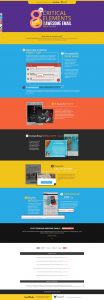July 9, 2016
July 9, 2016
You’ve opened a small business and your sales are strong. Before the revenue can hit the bottom line, however, there are expenses to pay. Many of them are major, and most will recur each month. The trouble is, not enough small business owners keep key expenses in mind when making their financial projections. Here’s what you should be thinking of:
- Rent – Your rent is one of your biggest expenses and it may also be the most important for the future growth of your business. When you apply for a loan, one of the first calls your bank or alternative lender will make is to your landlord. Paying rent on time is a key measure of creditworthiness. So think hard about whether you really need an expensive street-front storefront. A growing number of small businesses are choosing to operate out of a shared workspace like WeWork or Blender.
- Equipment – Every business needs some kind of equipment. Some will last for years, and some will need to be upgraded regularly because of heavy usage or obsolescence. As you make projections about your equipment spending, keep this in mind: Section 179 deduction is now $ 500,000 a year. Section 179 of the federal tax code lets you write off purchases of qualifying equipment in the year in which they are bought. This can significantly improve what you owe in taxes. If buying equipment is too much of a drain on your cash flow, consider leasing: There’s financing available for either and you can still claim the deduction.
- Employee Compensation – Failing to invest properly in your employees can lead to high turnover. You’ve got to budget appropriately for salaries and other aspects of employee compensation like benefits. Your business may not be affected by the Affordable Care Act now, but your compensation budget should anticipate when your growth will push you past the 50-employee threshold for Obamacare. And don’t forget to budget for training new employees.
- Energy and Utility Usage – Gas, electricity, heat and hot water can add up and, for most business, they are expenses separate from rent. So be proactive. Call a plumber to fix leaks and check if your local utility has an energy audit program. Many states, like New York, will send a specialist to a small business to see where it is wasting energy. Or think about reducing this expense by going greener.
- Vehicle Usage – Even when gas prices are as low as they are now, maintaining a business vehicle can be a major expense. It can also be a key deduction if you keep good records. Car and truck business expenses include loan or lease payments, interest payments and maintenance and repairs. Other tax deductible expenses include gas, oil changes and vehicle registration. Remember you can deduct expenses related to the business use of your personal car, but you’ll need to document it carefully. Plan ahead for fleet replacement so repair bills don’t outrun usage.
- Time – Yes, your time is money. Maybe you’re spending too much time on business tasks that could be delegated; maybe you have trouble managing your work-life balance. Take time to make sure every aspect of your business day is cost effective.
Lastly, the U.S. Small Business Administration has several excellent resources to help small business owners plan and track their business budgets. Time waits for no one, so start planning today to plan for tomorrow by accessing information that’s available to all business owners
Business & Finance Articles on Business 2 Community(101)







